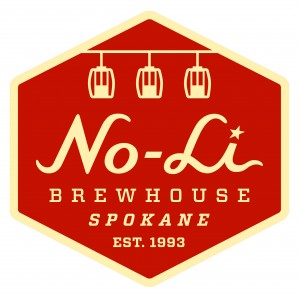
Tucked away in Eastern Washington, the city of a little more than 200,000 sits on the Idaho border, about an hour away from popular resort destinations to the East. Nationally, Spokane’s best known institution is likely the Gonzaga Bulldogs basketball program; every March, expert analysts pick the Jesuit University to make a run in the NCAA tournament.
But beyond March Madness, Spokane is rarely in the national spotlight; it isn’t home to any professional sports teams or Fortune 500 companies. In some circles, it’s jokingly referred to as “Spokanistan.”
For years, Spokane’s had a craft beer scene that’s been in line with the nickname. Despite the presence of mature beer towns like Seattle or Portland a few hours away, and despite the fact that it’s located within 100 miles of the freshest hops and malts in the entire country, Spokane isn’t home to any large regional craft brewers. In fact, the small craft companies that did operate in or near Spokane, until recently hadn’t even bottled a single beer.
But economic development takes many forms, and right now the eagerness of the city government to put Spokane on the map has combined with the arrival of a strongly-credentialed craft beer veteran to create a strategy: make Spokane a beer hub.
“We have a passionate group of relatively young entrepreneurs in this city now that want to create a vibe in a place like Spokane that hasn’t really had a craft beer scene,” said John Bryant, the co-owner and president of No-Li Brewhouse, who is the credentialed veteran in question. “I think Spokane is searching for an identity and I think craft beer can be a part of it.”
Spokane wouldn’t be the first town to try to remake itself as a brewers’ paradise. Smaller towns than Spokane, like Asheville, N.C., now home of secondary breweries for big craft companies Sierra Nevada, New Belgium, and Oskar Blues, and Bend, Ore., which has Deschutes Brewery to act as a mother ship for newer brands — have built themselves into legitimate craft beer hubs through cooperation with expanding or existing breweries and local promotion. Whether Spokane is able to do so will depend on many factors, but the plans are in place.
“I think Spokane is representative of a lot of small communities that are discovering craft beer from small and independent breweries,” said Charlie Papazian, the president of the Brewers Association. “I think there are some very enthusiastic entrepreneurs in Spokane and I’d say that consistently, everyone that has jumped into the scene is passion. Some have more experience than others and they will all be challenged with growing their businesses in a different economic environment.”
